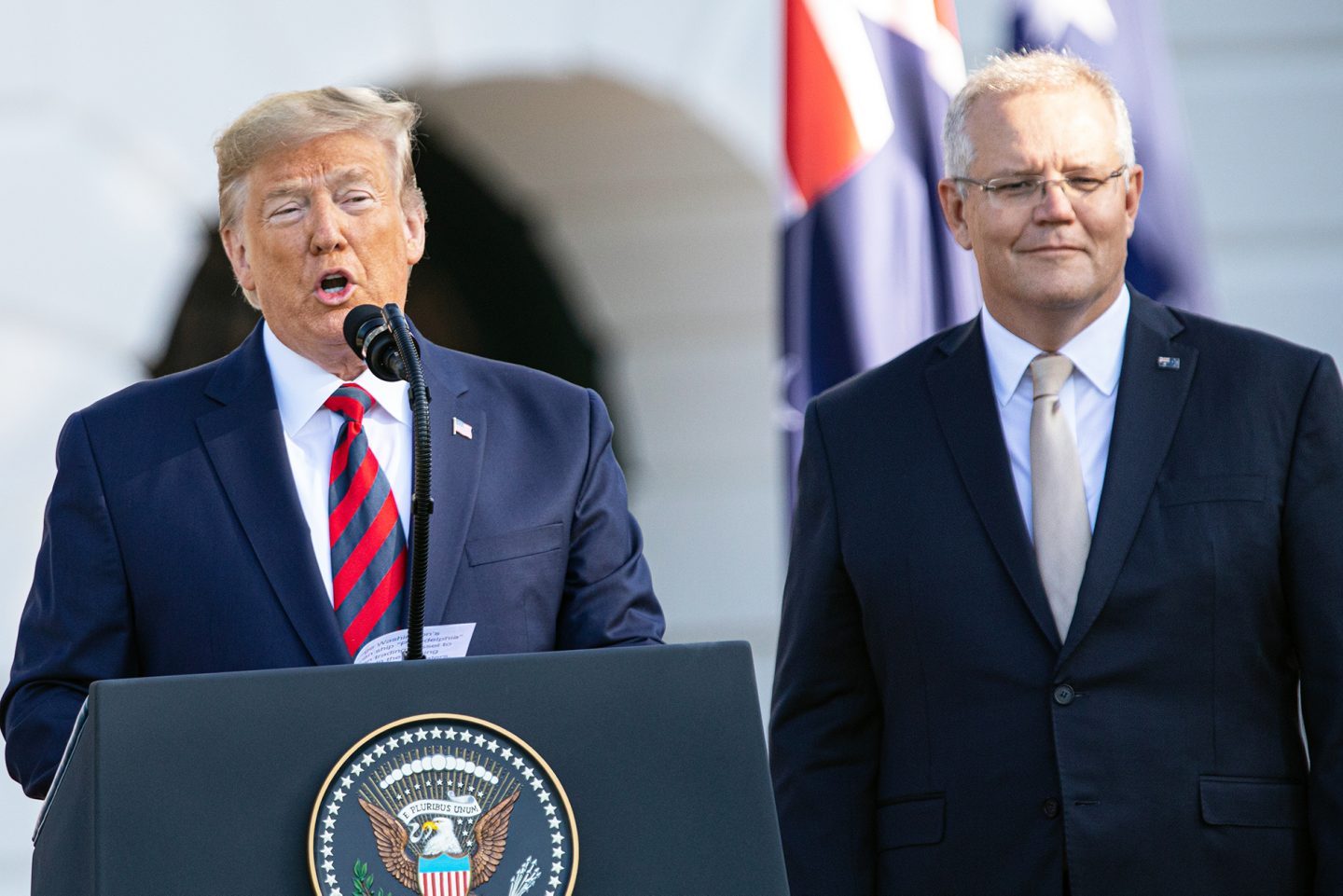
Walter Marsh
Walter is a writer and editor living on Kaurna Country.

The Australian public needs to be able to trust authorities in times of crisis, but after years of gaslighting, ignoring experts and treating its most vulnerable citizens with contempt, the federal government needs to work a whole lot harder.
In the past few days federal and state governments have stepped up their rhetoric around the COVID-19 pandemic, shifting away from protecting Australia’s economy to taking more serious measures to manage the risk of widespread community transmission. On Friday, Morrison announced that, as a precautionary step, all ‘non-essential’ public gatherings of over 500 people should be cancelled – from the following Monday. By Sunday, he confirmed international arrivals would be forced to voluntarily quarantine themselves for 14 days, while members of the public are now encouraged to call out colleagues who turn up to work with symptoms.
In media, it’s important to be sober and responsible with facts and official advice, especially during a public health crisis like this one. And yet even as we take in every new update, watch every sporadic government press conference, and sift through the avalanche of reporting from around the world, it has been hard to unpack exactly how worried we should be in Australia, whether our responses should match the latest government advice, or if we should take extra precautions.
These piecemeal government announcements, often contradicting statements made days or hours earlier, are to some degree par for the course for a rapidly changing public health crisis. But it’s also symptomatic of a government whose record for keeping the public informed is woeful; their communications apparatus is more typically found running interference around self-inflicted scandals, pushing empty, self-aggrandising campaigns about budget surpluses, or leaking to friendly media outlets in an attempt to take down internal and external opponents.
In the absence of a clear public health campaign – complete with significant advertising and unambiguous messaging – social media instead hums with Medium.com articles written by obscure health professionals, articles from international publications, re-shared graphs rendered pixelated and blurry from constant downloading and re-posting, or contextless footage of panicked scenes overseas.
We’ve seen social networks and news outlets wring endless clicks from footage of people bulk-buying toilet paper and other supplies, while commentators and members of the public share their confusion as to where the memo about toilet paper prepping originated (even as they share and repost videos of supermarket scenes that help propagate the message that there is a toilet paper shortage).
This atmosphere of uncertainty is made worse by the years spent under a government that has repeatedly and pointedly avoided telling the truth or providing reliable information and advice.

This government has shown, time and again, that its first instinct under pressure is to bullshit its way out. We saw it during the Reza Barati case, when then-Immigration Minister Scott Morrison was quick to announce that the murdered asylum seeker had left the safety of the Manus Island compound at the time of his death, a claim which later proved unfounded. Last year, we saw Morrison dismiss reports that he sought to score his pastor – controversial Hillsong leader Brian Houston – a White House invite as ‘gossip’, only to finally confirm it last week. Then, the bizarre, bald-faced denial by the PMO of Morrison’s Hawaii vacation right up until members of the public began posting photos of him in a Hawaiian beach bar on social media . Then there’s Angus Taylor and water buybacks, Angus Taylor and the doctored City of Sydney documents, Angus Taylor and the bizarre Naomi Wolf anecdote, basically anything Angus Taylor. Where to even begin with the ‘sport rorts’?
But perhaps the biggest campaign of disinformation is the Coalition’s insistence that it is taking appropriate action on climate change, that we will ‘meet and beat’ our Paris commitments despite spending a decade working against decarbonisation measures, trash-talking renewables and even today working to prop up the fossil fuel industry. For years this opportunistic dishonesty gained a pass because the effects of climate change were difficult to communicate, seemingly too far-off. But COVID-19 is a crisis that cannot be hand-waved away beyond the next election.
However, even this month’s responses have mirrored the Morrison government’s usual PR strategy; the strange mixed messages, the unfounded ‘she’ll be right’ positivity, the confusing and unnecessary inconsistencies in official stories. Morrison insisting he would attend a weekend Rugby League match, even while announcing a ban on such events. The bizarre vacillation on the issue of shaking hands, and reports of Josh Frydenberg continuing to mingle with the public while awaiting test results (he was eventually cleared).
We read of Peter Dutton’s office appearing to tell the Today show that he would miss a Friday morning appearance due to a ‘stomach bug’, symptoms inconsistent with those later described in his coronavirus statement. Is it any wonder scepticism flourishes online about how Dutton was tested so quickly, or why Morrison and other officials who came into contact with Dutton aren’t also being tested after people who shared a flight with Dutton came up positive for the virus?
Consider last week’s attempt to cushion the nation’s economy with some long-anticipated stimulus measures. A suite of tax breaks and one-off payments to certain sectors feels disingenuous, coming on the back of a decade-long campaign by the Coalition rubbishing the Rudd government’s response to the GFC – internationally recognised as insulating Australia from the worst of the global recession. Instead, economic stimulus was savaged in favour of an arbitrary goal of surplus-chasing, only for the government to finally adopt similar measures of its own, clearly hoping the public has a short memory.
But perhaps worst of all, this is a government that routinely demonstrates it is unwilling, or ideologically incapable, of looking after its most vulnerable citizens, from the persistent demonisation of Newstart recipients to the scandalously flawed ‘robodebt’ scheme which literally defrauded money from poor Australians. Then, of course, there was the $4.6 billion ‘saving’ to the budget caused by the government rolling out an NDIS scheme so flawed that thousands of Australians in need could not access the funding allocated.
In such an environment, can we blame the toilet-paper-and-spaghetti hoarders for assuming that, if the situation deteriorates, it’s every person for themselves? It’s just an extension of Morrison’s “if you have a go, you’ll get a go” slogan – in crisis survival mode.
As members of the public, it is important not to use this lack of faith in our government to surrender to panic. We don’t need Scott Morrison’s permission to exercise diligence, caution, empathy, and to take care of each other – even if that means putting distance between us.
But we do need to see more than the haphazard rolling press conferences, and the cautious under-messaging that appears to prioritise avoiding unwarranted fear or economic fallout over public safety.
As we’ve seen, panic and confusion can flourish just as easily in a vacuum. More importantly, we should be able to trust our government when they do tell us how to be safe – but that is a trust they need to start earning.
As of Sunday 15 March, there have been 20 confirmed cases of COVID-19 in South Australia. Readers are advised to consult SA Health’s website for the latest information.

Walter is a writer and editor living on Kaurna Country.